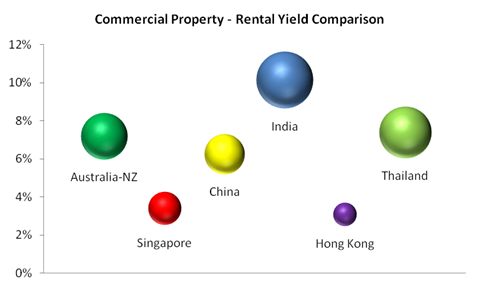 Investment Sale – Gaining Ground
Investment Sale – Gaining Ground
Real estate is a business that requires regular funding, be it at the acquisition or execution stage. To raise funds, developers in India opt for modes like joint venture, pre-sale and construction finance. Construction finance can work out cheaper but is difficult to obtain because of the strict guidelines laid down by the Reserve Bank of India. Other routes are relatively easier but cut into a developer’s profits, since they involve sharing approval as well as execution and marketing risk for the project.
Considering the time and complexity involved in the approval processes in India, coupled with delays in execution due to various reasons, a new option is becoming popular among developers and investors. This option is the investment sale route.
In this mode, investors acquire a stake in partially or fully-leased properties rather than entering at early stage of construction. This eliminates the execution risk for investor and provides regular rental income along with possibilities of capital appreciation, and developers enjoy better valuations for their properties.
Residential – Not a Preferred Asset Class For Investment Sales
Since the objective is to hold the property for a longer term to earn regular rental income while retaining an option to exit later, the quality of development as well as the project’s tenants become very important. This puts commercial properties at a distinct advantage, since a commercial lease transaction is, in most cases, an agreement with a corporate for a longer tenure of between 3 – 9 years.
A residential lease arrangement, on the other hand, is with an individual and invariably for a shorter term that usually does not exceed 11 months. Also, while office or retail assets provide higher yields of 10-12%, the yield for residential properties rarely exceeds 3-5%. Hence, residential – while indubitably the most popular asset class in India – is not preferred for investment sales transactions.
India Offers Huge Investment Potential
Real estate in India is currently at an interesting juncture. While it remains impacted by an uninspiring economic scenario that is likely to prevail for some time to come, Indian real estate’s long-term potential is wholeheartedly acknowledged by investors across the globe. With the government taking active steps to improve transparency in the sector, investor interest is expected to grow multi-fold in the future.
The Indian office sector in the top seven cities is currently valued at around USD 72 billion. Completed office space accounts for approximately USD 45 billion, while under-construction stock accounts for USD 27 billion. In terms of area, completed A Grade office stock in the top seven cities is as high as 376 million square feet and is highly concentrated in Mumbai, Bangalore, Chennai and the NCR region, which together constitute more than 80% of the total area.
Out of this A Grade office stock, nearly 45% is FDI compliant which, combined with higher rental yields, has made India an automatic choice for global investors.
Weak Rupee And Probable REIT Listing
The country’s weakening domestic currency has made investment in India all the more lucrative. If an investment of one USD fetched a foreign investor an asset worth INR 49 two years back, it fetches an asset worth of INR 59 today. While this is a double-edged sword, the advantages of a good entry point can certainly not be ignored. If the REIT commences in India, it will also provide easier exit with better valuation.
Challenging Environment
While India offers interesting investment sale options, the challenges it presents remain. The restriction on investments into specific asset classes, ever-changing policies on FDI, taxation and development, coupled with a lack of transparency in the system and high amount of friction in approval mechanisms, have led to an uncertainty in yields and tenure of lock-in for investments in real estate. This has affected investor sentiment and as a result, FDI in real estate and infrastructure in India dropped considerably from USD 5.8 billion in FY10 to USD 1.3 billion in FY13.
New Government – New Hopes
The new government at the centre and its various ministries have been distributed with focus on ‘minimum government, maximum governance’. By giving high importance to good governance and development in his mandate, India’s new Prime Minister has made it clear that he will go the extra mile to encourage foreign investment into the country and, in turn, improve the country’s business environment and prospects.
With massive real estate stock available at high rental yields, India’s excellent investment opportunity will multiply exponentially. If FDI regulations are relaxed going forward, investment sales as a market vertical will grow substantially in years to come.
Website: www.joneslanglasalle.co.in

